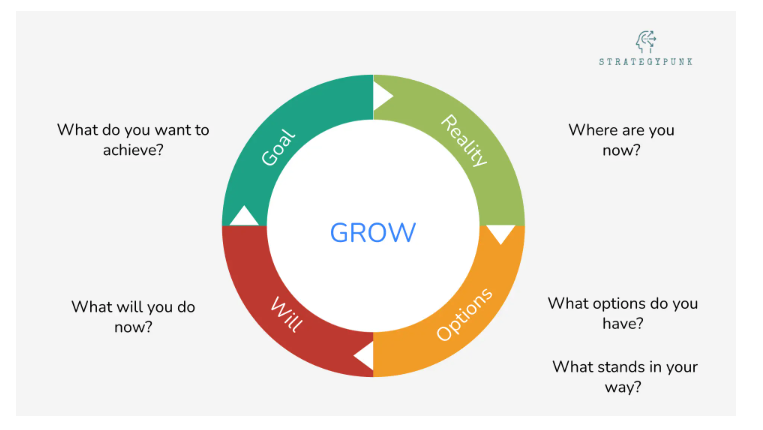Coaching Conversations: Unleashing Potential and Empowering Growth

In today's dynamic professional landscape, managing senior teammates requires a delicate approach that fosters their individual expertise, encourages their involvement in decision-making, and supports their professional development. One effective method to achieve these goals is through coaching conversations. Unlike direct feedback, coaching conversations leverage the power of peer partnership and questioning techniques to help individuals overcome internal barriers and unlock their maximum potential. In this blog, we will explore the essence of coaching conversations, debunk common misconceptions, delve into essential coaching skills, and introduce the GROW coaching framework.
What Coaching is Not:
Before delving into the intricacies of coaching conversations, it is important to clarify what coaching is not. Firstly, coaching is not synonymous with mentoring. While mentoring often involves top-down knowledge sharing from an experienced individual, coaching focuses on empowering the coachee to unlock their own potential. Additionally, coaching is distinct from therapy, which primarily centers around addressing past experiences, whereas coaching is future-oriented and aims to support personal and professional growth.
Coaching Skills:
- Listening: Listening is the cornerstone of effective coaching conversations. By actively listening without bias, we avoid jumping to conclusions and create a space for understanding and support. Listening to learn, rather than to respond, enables us to grasp the coachee's reasoning and perspective more effectively. It is crucial to pay full attention and eliminate distractions, demonstrating genuine interest in the coachee's thoughts and experiences.
- Questioning: Powerful questioning techniques are the catalysts that drive insightful coaching conversations. Open questions play a pivotal role in uncovering thoughts, ideas, motivations, and aspirations. These questions elicit descriptive responses, encouraging the coachee to reflect deeply. Follow-up questions, such as requesting elaboration or acknowledging observations, help to explore topics more comprehensively.
- Acknowledging: Acknowledgment is a vital aspect of coaching conversations, as it helps build confidence and reinforces the coachee's capabilities. By reminding coachees of their past achievements or experiences, coaches empower them to leverage their strengths and apply lessons learned. Acknowledgment fosters a positive and supportive environment that encourages coachees to take ownership of their growth journey.
The GROW Coaching Framework:
The GROW framework provides a structured approach for coaching conversations. It consists of four key stages:

- Goal: In this stage, the coach helps the coachee clarify their desired outcomes and aspirations. By asking questions like "What do you want?" and "What is your goal?" the coach guides the coachee to define their objectives clearly.
- Reality: The coach and coachee jointly explore the current situation and challenges faced by the coachee. This stage involves assessing the coachee's strengths, weaknesses, and any external factors influencing their progress. Understanding the reality empowers the coachee to identify areas for improvement.
- Options: In the options stage, the coach encourages the coachee to explore various possibilities and solutions. By asking questions like "What options did we explore?" and "What could you do?" the coach supports the coachee in brainstorming ideas and considering different approaches.
- Will: The final stage focuses on action planning and commitment. The coach helps the coachee define specific steps and determine a timeline for achieving their goals. Questions like "What will you do?" and "What are your next steps?" encourage the coachee to take ownership of their development and establish accountability.
Coaching conversations provide a powerful framework for managing senior teammates and facilitating their professional growth. By leveraging coaching skills such as active listening, powerful questioning, and acknowledgment, coaches create an environment that fosters individual potential and encourages meaningful engagement. Although we have explained one coaching framework GROW here, at the heart of coaching methodology is the act of using open ended questions to raise awareness and bring responsibility in coming up with a solution. By adopting a coaching style, managers can unlock the true potential of their senior teammates and drive exceptional results in their organizations.